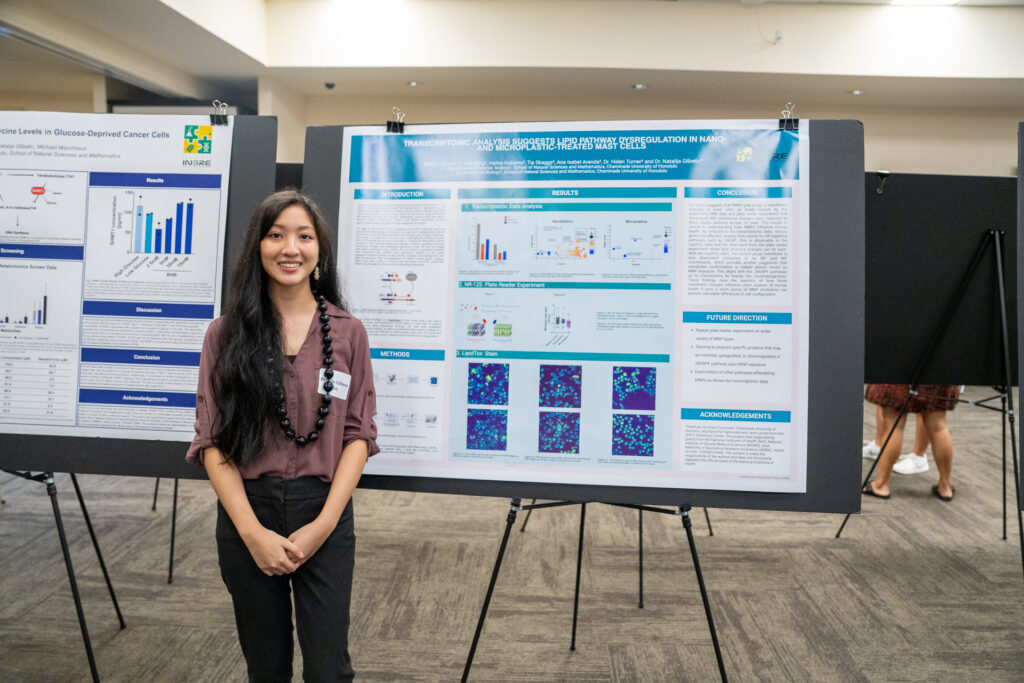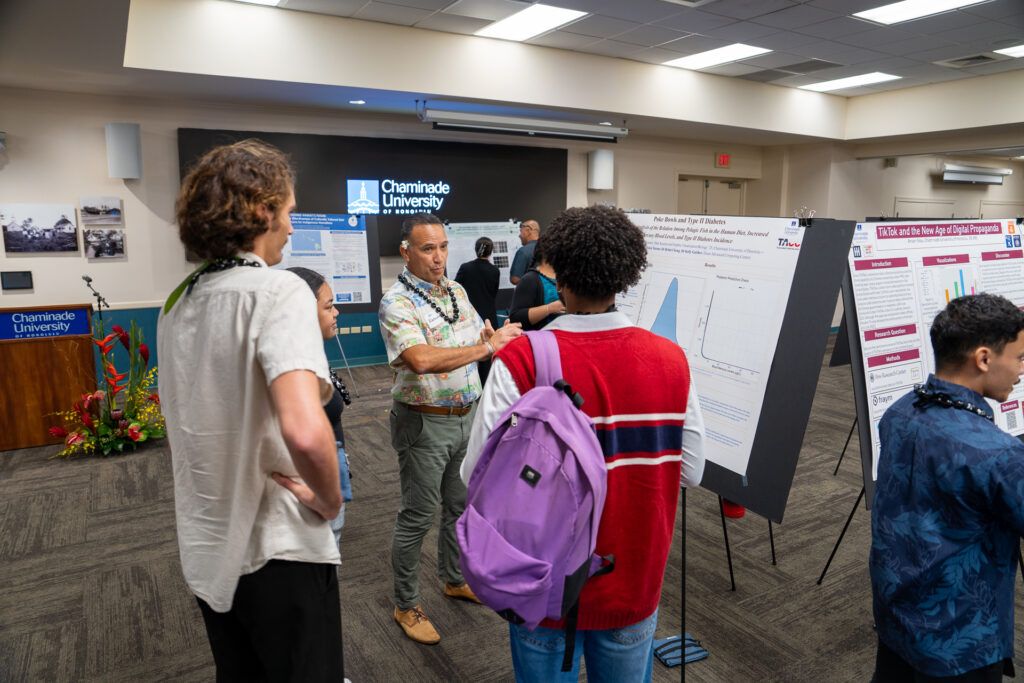“Investigating human mast cell degranulation and membrane alterations due to nanoplastic exposure”
“Tiktok and the age of digital propaganda”
“Evaluating the effectiveness of culturally tailored diet programs for indigenous Hawaiians”
Those are just a handful of the more than two dozen projects Chaminade students presented on at this year’s Na Liko Na’auao, an annual symposium aimed at showcasing undergraduate research.
Amber Noguchi, Ph.D., assistant provost for Undergraduate Research and Pre-Professional Programs at Chaminade, said participating students each worked closely under the mentorship of a faculty member.
Never miss a post! Follow Chaminade University on Facebook and Instagram.
“Na Liko Na’auao not only represents a milestone accomplishment for our students, but a stepping stone for those who plan to pursue careers in various sectors,” she said, adding the April 16 symposium was also an opportunity to celebrate the hard work of undergraduate researchers and their scholarship.
“This venue celebrates their hard work. They are able to practice their communication skills, explore their strengths and identify areas for improvement, and get feedback on their work from faculty, staff and peers.”
Hailey Kekumu ‘25, a biology major who is also minoring in biochemistry, presented her research on nanoplastic exposure.
“The focus of my research is on how exposure to nanoplastics, which are less than 1 micrometer in size, affects our immune system, an important mediator between us and our environment,” said Kekumu, who also presented at Hawaii’s INBRE Undergraduate Research Symposium.
“My project is more immunology based, which was my primary interest when I first started here at Chaminade. My mentor also mentioned that research on nanoplastics is still relatively new, so our research serves as a sort of foundation on future studies looking into nanoplastics,” she said.
Kekumu added that she hopes to continue her research and potentially pursue medicine.
Zach McClellan ’25, who is majoring in psychology with a minor in criminal justice, studied the impact of occupational stressors on firefighters. He said the feedback from fellow student researchers, faculty members and others at the symposium was incredibly valuable—and positive.
“At first, I was a little nervous, but I was able to remind myself that I’m having a conversation with others about what I’m passionate about which kept me grounded. There were a lot of graduate programs that I was able to speak to about their programs and learned a lot through that,” he said.
McClellan added that he hopes to continue his research with a doctoral degree in neuroscience or clinical psychology. “I am excited about pursuing this study because I come from a family of firefighters,” he said.
“I also enjoy doing research in general because I am able to chase my own ideas and back them up with strong statistical data. Firefighter mental health is a very under-researched issue, which I aim to add to.”





















































